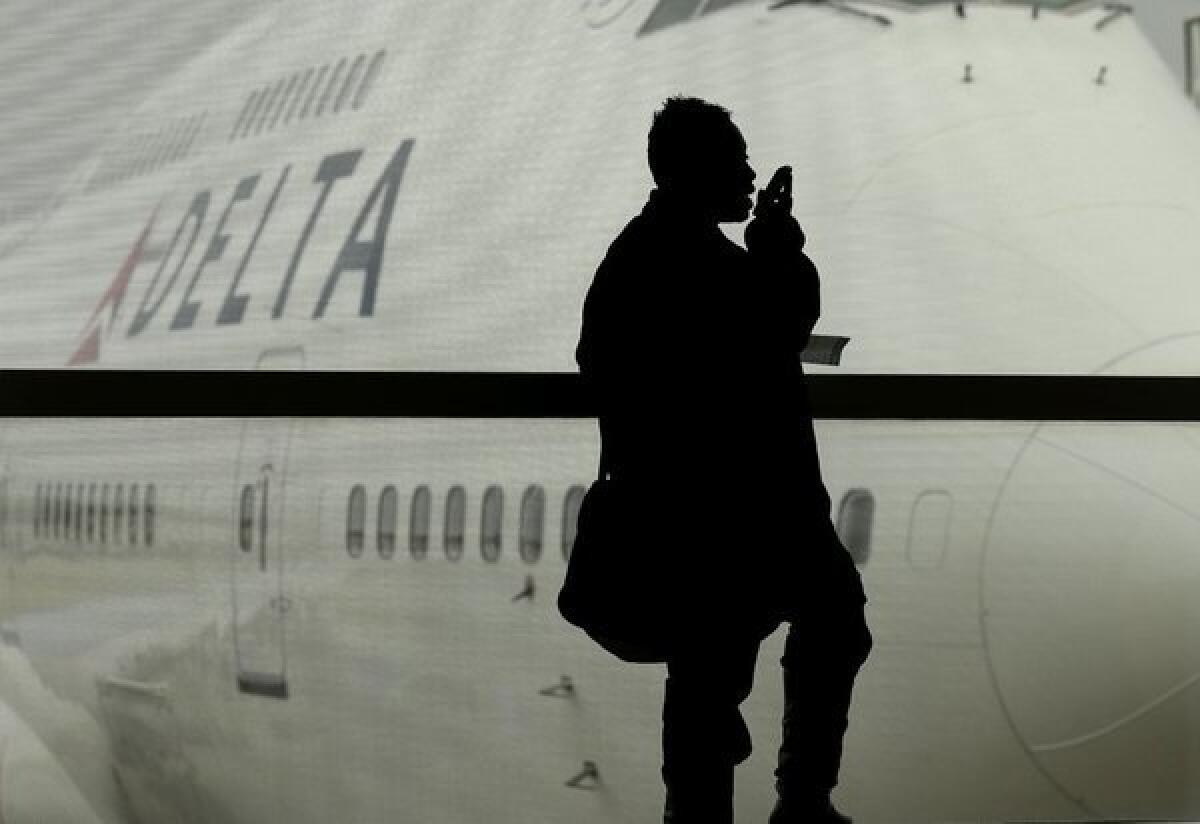More signs that cellphones won’t soon be coming to your airline

- Share via
Is the great airplane cellphone scare already over?
The backlash provoked by the Federal Communications Commission’s plan to lift its ban on cellphone use on airplanes has won two high-profile adherents -- the CEOs of Southwest and Delta, who both announced that their companies won’t be allowing voice calls on their flights.
Delta CEO Richard Anderson was especially blunt, telling employees in a memo that the company won’t be allowing “cellular calls or Internet-based voice communications onboard Delta or Delta Connection flights.” That would also rule out Skype calls made from WiFi-enabled laptops or tablets.
The Delta and Southwest statements set the standard for other U.S. airlines pondering whether to allow voice calls. Those that do would have to explain why they’re intent on subjecting their passengers to noisier and more aggravating flying environments than their competitors.
As we observed last week, there doesn’t seem to be a groundswell in favor of in-flight voice calls. Even business passengers, who might be a prime market for voice service, appear satisfied with the capability of text messages and email to keep them connected in flight. Those services are likely to be allowed, once the FCC and the Federal Aviation Administration finish their respective reviews of their regulations. The airlines will surely be happy to install the onboard technology needed to enable data use of smartphones -- and charge passengers a fee for the privilege, as they already do for Wi-Fi connections.
A good window into demand for voice calls is the fate of Airfone, a service offered by Verizon some years ago -- some planes can still be found with the once-ubiquitous bulbous white Airfone units embedded in seat backs.
Whether because the calls were expensive -- $3.99 per call and $4.99 per minute were the going rates -- or inconvenient, Airfone never really, er, took off. On average, only a couple of calls were made using the system, and in 2006 Verizon shut it down.
The FCC’s review of the cellphone ban is mostly technical -- since the technology exists to shield aircraft electronics and terrestrial networks from interference from cellphones aloft, an FCC ban is no longer needed. The FAA, which has a greater responsibility for the passenger environment, sounds skeptical that lifting the ban would be wise. Delta’s Anderson says that flight attendants and pilots are warning that policing voice calls and maintaining domestic tranquillity in the cabin will be a burden. Bottom line: Don’t expect to have to “shush” a chattering passenger in the next seat any time soon.
More to Read
Inside the business of entertainment
The Wide Shot brings you news, analysis and insights on everything from streaming wars to production — and what it all means for the future.
You may occasionally receive promotional content from the Los Angeles Times.











